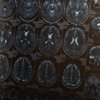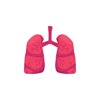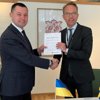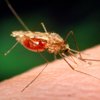Fritextsökning
Artiklar per år
Innehållstyper
-

Macchiarini fälls för grov misshandel – döms till 2,5 års fängelse
Svea hovrätt dömer den italienske kirurgen Paolo Macchiarini för tre fall av grov misshandel. Påföljden bestäms till fängelse i två år och sex månader.Domen innebär en kraftig skärpning jämfört med tingsrättens dom i fjol.
-

Lucy Robertshaw: Artificial intelligence – is this really going to transform a patient’s life?
In a column Lucy Robertshaw reflects on how AI and new regulations will affect healthcare, innovation and the lives of future patients.
-

Vikingasjukan kan bero på genvarianter från neandertalare
Den så kallade vikingasjukan, som påverkar handfunktionen hos många äldre, kan vara kopplad till genvarianter nedärvda från neanderthalare, enligt en ny studie.
-

Negativa signaler om Alzheimerläkemedlet lecanemab i Europa: "Inte värdefullt nog"
Experter i Europa inom Alzheimers sjukdom uppger att förmågan hos Bioarctics lecanemab att bromsa sjukdomsförloppet möjligen inte uppväger hälsoriskerna med behandlingen och ifrågasätter om lecanemab är värd att satsa på med tanke på knappa hälsovårdsresurser. Det skriver nyhetsbyrån Reuters.
-

Anna Törner: The minute between life and death
“I have never told anyone about this day that happened more than 20 years ago. But I sometimes reflect on what happened, on what might have happened. When I try to understand why I haven’t told anyone, I find the answer: a feeling of shame. There is no forgiveness for something like this, even though it is very human to be distracted for a moment,” Anna Törner writes in a column.
-

AstraZeneca moves to brewery quarters in central Copenhagen
AstraZeneca in Denmark is moving its business into central Copenhagen and the old brewery quarters in Carlsberg Byen.
-

Nanoparticles to help detect pulmonary disease
Nanoparticles behave in a certain way in the air. Using this knowledge, researchers at Lund University have developed a new measurement method for lung examinations based on the phenomenon.
-

Positiva FDA-signaler om Bioarctics Alzheimerläkemedel
media på onsdagskvällen.
-

Rapid developments in AI – “All stakeholders are struggling to understand it”
Artificial intelligence is being discussed more and more, and developments in the field are moving rapidly. As the Swedish Medical Products Agency testifies, keeping up with developments is not easy.
-

Study: Semaglutide tablet produces weight loss
The pharmaceutical semaglutide is effective for weight loss even when given in tablet form, according to a phase 3 study.
-

Norwegian company wins bidding battle for Sensidose
The lengthy battle to acquire medical device company Sensidose is apparently over. Generic medicines company EQL Pharma is pulling out, selling its shares and leaving the way open for Norwegian company Navamedic.
-

”En dag hejdade jag mig – vad är det egentligen jag vill?”
När Tina Persson hade verkat som forskare inom akademin och arbetat i näringslivet, i totalt tjugoåtta år, stannade hon upp, tänkte efter, bytte bana och startade sitt eget utbildnings- och coachföretag.
-

Samuel Lagercrantz: The government’s performance in healthcare and life sciences so far
Since the change of government in Sweden, developments in the healthcare sector have shown promising signs, but the outlook in life sciences is less promising, writes Samuel Lagercrantz in an editorial.
-

Samuel Lagercrantz: Så levererar regeringen hittills inom sjukvård och life science
Det finns goda tecken inom sjukvårdsområdet sedan regeringsskiftet, men inom life science ser det däremot mindre lovande ut, skriver Samuel Lagercrantz i en ledare.
-

Swedish and Ukrainian Medical Product Agencies sign an agreement
The Directors-General of the Swedish and Ukrainian Medical Products Agencies have signed a cooperation agreement.
-

A new malaria vaccine offers hope but much more research is still needed
There has long been no vaccine against malaria, but there have been breakthroughs in recent years. However, it is still unclear how we become immune to the malaria parasite, and this is a vital piece of the puzzle for creating effective vaccines, says malaria researcher Kristina Persson.
-

Study: Chat GPT is more empathetic than doctors
The AI tool Chat GPT is not only more accurate when it comes to answering patient questions – the chatbot is also perceived as almost 10 times more empathetic than real doctors, a new study reveals.
-

Petter Hartman: Kombinationsbehandling mot faktaresistens
"Kunskapsrelativismen har blivit rumsren i allt större kretsar. Till och med sådant som vetenskapen med stor säkerhet kunnat fastslå som obestridligt, ifrågasätts på lösa grunder" skriver Petter Hartman i en krönika.
-

Hård branschkritik mot EU:s läkemedelsförslag
Läkemedelsbranschen riktar frän kritik mot delar av EU-kommissionens förslag till ny, gemensam lagstiftning på läkemedelsområdet. "Det är fel svar på ett problem", säger Astra Zenecas vd Pascal Soriot.
-

New report: Fewer PhDs in life sciences
A new report from Vinnova suggests that competency returns in the life science sector are declining.
-

Uncertainty about the government’s life science work
The government’s national coordinator for life science, Jenni Nordborg, left her position almost four months ago. No one has yet succeeded her, and now questions are being raised both about the government’s plans for the office and the Swedish life science strategy.
-

Pfizer’s record year – topped the $100 billion mark
In 2022 Pfizer, as the first pharmaceutical company in history, reached an annual revenue of more than 100 billion dollars, thereby surpassing Johnson & Johnson as the industry’s top selling business.
-

He got inside the head of Sweden’s vaccine hunter
The hunt for the COVID-19 vaccine is the theme of the new book Vaccinjägaren (The Vaccine Hunter). It tells the story of Richard Bergström’s mission as Sweden’s national vaccine coordinator and the scheming that went on behind the scenes in Europe. Author and medical journalist Nils Bergeå co-wrote the book with Richard Bergström.
-

New diagnostic rules raise concerns
In a panel discussion, several voices from academia and the industry expressed concerns about the transition to the new regulatory framework for in-vitro diagnostics (IVDR). They argue that it may create significant differences between regions